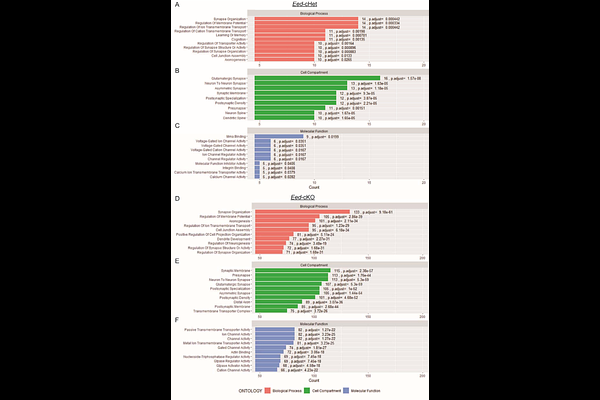Polycomb Repressive Complex 2 is critical for mouse cortical glutamatergic neuron development

Polycomb Repressive Complex 2 is critical for mouse cortical glutamatergic neuron development
Currey, L. E.; Mitchell, B.; Al-Kahlily, M.; McElnea, S.-J.; Harkins, D.; Pelenyi, A.; Kurniawan, N.; Burne, T. E.; Harris, L.; Thor, S.; Piper, M.
AbstractThe Polycomb Repressive Complex 2 (PRC2) regulates corticogenesis, yet the consequences of mutations to this epigenetic modifier in the mature brain are poorly defined. Importantly, PRC2 core genes are haploinsufficient and causative for several human neurodevelopmental disorders. To address the role of PRC2 in mature cortical structure and function, we conditionally mutated the PRC2 gene Eed in the developing mouse telencephalon. Adult homozygotes displayed smaller forebrain structures. Single-nucleus transcriptomics revealed glutamatergic neurons were particularly affected, exhibiting dysregulation of cortical layer-specific profiles, accompanied by aberrations in neuronal morphology and connectivity. Incredibly, homozygous mice performed well on challenging cognitive tasks. In contrast, heterozygous mice did not exhibit anatomical or behavioral phenotypes but displayed dysregulation of neuronal genes and altered neuronal morphology that was strikingly different from homozygous phenotypes. Collectively, we demonstrate how alterations to PRC2 function shape the mature brain and reveal a dose-specific role for PRC2 in determining glutamatergic neuron identity.